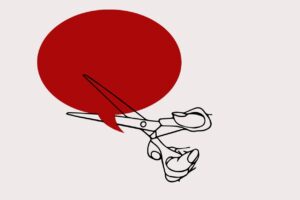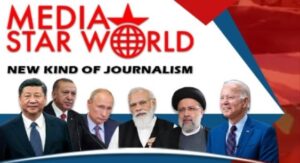 A public meeting was held at the Constitution Club on Saturday, 1st December. to discuss the worrisome trend of anti-terror laws being used to stifle democratic dissent by harassing civil rights lawyers, poets and writers. The meeting was called by the group of petitioners who had approached the Supreme Court in the matter of the arrest on 28th August of persons alleged to be “urban naxals” (Varavara Rao, Sudha Bharadwaj, Gautam Navlakha, Arun Fereira and Vernon Gonsalves). Their petition, supported by more than 30 senior lawyers affiliated to the Supreme Court, was eventually rejected. Four of the five accused are currently in jail in Pune while the fifth (Gautam Navlakha) is continuing to fight a legal battle for his liberty.
A public meeting was held at the Constitution Club on Saturday, 1st December. to discuss the worrisome trend of anti-terror laws being used to stifle democratic dissent by harassing civil rights lawyers, poets and writers. The meeting was called by the group of petitioners who had approached the Supreme Court in the matter of the arrest on 28th August of persons alleged to be “urban naxals” (Varavara Rao, Sudha Bharadwaj, Gautam Navlakha, Arun Fereira and Vernon Gonsalves). Their petition, supported by more than 30 senior lawyers affiliated to the Supreme Court, was eventually rejected. Four of the five accused are currently in jail in Pune while the fifth (Gautam Navlakha) is continuing to fight a legal battle for his liberty.
The charges are quite dramatic, including a plot to assassinate the prime minister with arms and ammunitions smuggled in from abroad, but have not yet been supported by any credible evidence. The police claim to have some incriminating letters, but they have not produced them in court. The gross mismatch between the seriousness of the allegations and the slow pace of investigation suggests that the authorities are more interested in harassing the accused than in proving their case
Prof. Romila Thapar (professor emerita at JNU, and the first petitioner in the Supreme Court case) introduced the subject (see video here)
Others who spoke included rights activist Aruna Roy, senior journalist N. Ram and leading public interest lawyer Prashant Bhushan, Prof. Zoya Hasan (retired professor of political science at JNU), Vrinda Grover (eminent lawyer), Bhasha Singh (well known journalist) and Anirban Bhattacharya (student activist).
Romila Thapar recalled that dissent and diversity of views were common in Indian history and were considered quite normal. She stressed that dissent is not an act against the state but an essential aspect of any democracy.
Prashant Bhushan said that it is a complete perversion of our system that people can be locked up for having dissenting views. He emphasized that we have to fight against unconstitutional laws like the UAPA, NSA, AFSPA, law of sedition and criminal defamation that are being used to suppress dissent and intimidate political opponents. We have to fight to repair our institutions and to get rid of communal poison.
Deploring the lack of independence in much of the media today, senior journalist N. Ram recounted the recent use of an unknown provision of the law – Article 124A – against a Tamil magazine Nakkeeran. He said that the case for freedom of speech had to be made much stronger than simply liberal ideas so that they include notions of justice. He called for an educational campaign that would link the freedom of speech to the importance of dissent and protest.
Stressing the importance of the Supreme Court petition for the media, well known journalist Bhasha Singh reminded the audience of the change in the tone and tenor of reporting on the arrests of the alleged “urban naxals” after this petition. The prefix “alleged” was suddenly remembered and inserted where before the state’s accusations were taken at face value. The case and the unprecedented award of house arrest forced the media to rethink its role.
Young activist and scholar Anirban Bhattacharya said that those in power have a three “D” strategy – divide, divert and demonise. He said that various invented terms like anti-national and urban naxal are being used to pursue this strategy and a big effort is needed to detoxify our society.
Targeting of free speech on such a scale has not been seen since the Emergency, according to the eminent political scientist Zoya Hasan. What sets this regime apart from previous ones is its focus on inventing internal enemies. The aim here is not to target real enemies of the state but to deligitimise dissent and to disenfranchise minorities and vulnerable groups. That is why this regime is more dangerous than previous ones because it is trying to build a majoritarian state.
Rights activist Aruna Roy said that in her travels across the country in recent times she had been struck by the popular opposition to the arrest of the alleged “urban naxals”. She said that the government and ruling party is attacking activists of various kinds precisely because these activists are able to expose the hollow claims of the regime.
All the speakers expressed grave concern at the misuse of special laws for muzzling dissent and suppressing democratic rights. They highlighted the need to make the state accountable for its actions and for ensuring that the protections offered by the law were not denied.


